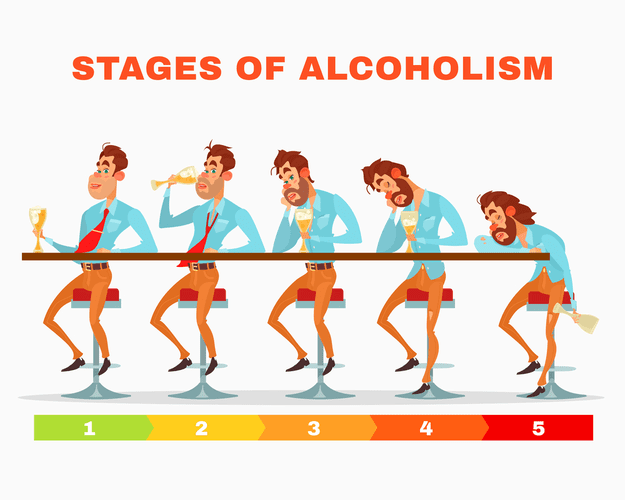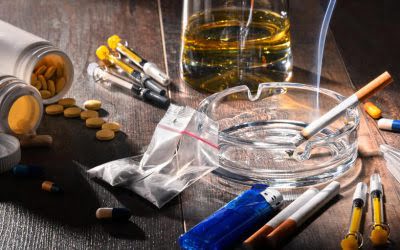- Apr 12, 2019
- Prova Prova
- 0
Contents
Sometimes, individuals in recovery set extremely high standards for themselves. Then when unable to maintain unreasonable expectations, develop a sense of self-defeating internal dialogue. These negative thoughts and feelings can be dangerous emotional triggers that should not go ignored. But you must also set them with yourself, regarding exposure to substance abuse triggers. Navigating past one or two triggers at a time can be possible for some people. A trigger refers to anything that brings up the idea, sensation, temptation, or thought of giving in to addiction.
- A memory connection may occur when you visit the areas you used to drink or abuse drugs, including bars, concerts, neighborhoods, and hotels.
- Whether your triggers are emotional distress or a specific situation, it is essential that you know what compels you to use when trying to lead a life of sobriety.
- The information we provide is not intended to be a substitute for professional medical advice, diagnosis or treatment.
- The responses to psychosocial stressful stimuli in healthy individuals also involve the participation of hippocampus, amygdala, insula and prefrontal cortices .
- You might be worried that this distraction tactic might come across as rude if you’re out in public.
A physical addiction trigger could even be a car, or a type of car if it sets off a craving. Avoiding triggers is only one part of the puzzle when it comes to addiction and recovery. As we’ve mentioned a few times, it’s important to learn healthy coping mechanisms to help you handle yourself if you happen to encounter one of your triggers while you’re out in the world. Avoiding all of your triggers isn’t always an option, but running into one when you’re going about your daily business doesn’t necessarily have to trigger a relapse. Addiction happens because the use of drugs or alcohol makes a person feel better in some way.
Getting Addiction Treatment To Manage Triggers and Stay Sober
Use the opportunity to your advantage by discussing https://en.forexrobotron.info/ linked to feelings during therapy and addiction education lessons. This could include family, friends, sponsors or other members of your addiction recovery community, just to name a few people. These need to be people that you’ll feel comfortable calling on if you encounter one of your triggers out in the world and need someone to talk to as a tool to help prevent relapse. Addiction relapses are similar in that the individual needs to seek treatment to get back on track. To overcome withdrawal symptoms, most people need some form of detoxification orwithdrawal managementservice. A long-term, severe relapse might require residential treatment, while people with prior experience in a treatment program may do well withoutpatient therapy.

This will not only help sober people stay sober; it will also educate those who don’t fully understand the disease of addiction. Whether your triggers are emotional distress or a specific situation, it is essential that you know what compels you to use when trying to lead a life of sobriety. Understanding what triggers you to relapse and having a plan in place for these triggers are your first steps toward prevention. There are so many beneficial ways to cope with addiction triggers that can endanger sobriety. The number one way to reduce the intensity of any trigger is to better manage all-around stress levels.
What to Do in Case of a Relapse
Rehab counselors, therapists, and those that have faced addiction before you, offer valuable coping skills for dealing with addiction triggers. Check out some of the most common temptations are, and how to deal with triggers that threaten sobriety. People closest to the individual may set off cravings that eventually lead to a relapse.
What are external triggers?
External triggers are environmental events and situations that make you want to use drugs or drink alcohol. This can be anything from certain social situations, responsibilities, and even specific places that trigger your desire to use again.
A NIDA study maintains that exposure to drug-related objects may influence a former addict’s behavior. The brain registers these stimuli and processes them in the same areas involved in drug-seeking behavior. short and long term effects of alcohol Cues such as spoons can trigger memories of drug use in former heroin users without them being aware. In simple terms, a trigger is anything that brings back thoughts, feelings, or memories of an addiction.
What is the Most Dangerous Drug in the State of Indiana?
However, a more recent meta-analysis concludes the absence of a consensus in relation to the brain response to conditioned drug stimuli (Zilberman et al., 2019). Triggers that happen outside of the individual are not necessarily beyond control. There are multiple reminders of substance use in a former drug user’s life, including people, places and things. Asking the right questions and taking the correct steps can enable people in recovery to healthily transition to their normal life without risking a relapse. While holidays are a time of celebration for some, they may be a struggle for people in recovery.
Where is trauma stored in the body?
Ever since people's responses to overwhelming experiences have been systematically explored, researchers have noted that a trauma is stored in somatic memory and expressed as changes in the biological stress response.
When people in recovery succumb to triggers, their brains create reasons to use substances despite knowing that they must remain abstinent. This ongoing fight increases their vulnerability to cravings, which may result in a potential relapse. When you are unsure of your self-control, avoid situations that can force you to indulge in illicit drugs. People undergoing addiction treatment may find it challenging to attend celebrations and parties where alcohol is available.
Managing Internal Triggers
Unfortunately, at that point, the process of relapse has already begun. That pressure to try desperately to keep the pieces of your recovery together begins to become a trigger in itself. Addiction treatment programs like rational emotive behavior therapy are designed to focus on just that.

Whatever the course of treatment, it will involve the person identifying the reasons they relapse and learning what steps to take to prevent it in the future. For many people, drug and alcohol use began as a way to alleviate boredom or make certain activities feel more fun. Those in recovery often have a hard time finding new ways to have fun, and it may cause them to glamorize or ruminate on their past substance abuse. Recovery is hard work and drug use feels easy, and this can make people feel like their efforts haven’t been worth it. Therapy can help people overcome the cognitive challenge of acknowledging the difficulty of recovery but realizing that sustaining an addiction is far harder. Recovery is a journey with no end, yet some people begin to feel that they are cured and don’t have to worry about triggers anymore.
Family and friends often tempt those in recovery to consume alcohol because they are under the misconception that one deviation from the treatment plan will not be detrimental. Friends and family may not understand the consequences massachusetts sober housing corporation of negative behaviors toward people in recovery. These behaviors can make the individuals feel alienated and push them toward substance use. The transition back to life outside of rehab is fraught with the potential for relapse.
However, there is no doubt that addictive disorders have a strong subjective component that is not fully fitted with the present models. Of special interest is the role of the so called “Big Five” personality traits in the risk for drug addiction (Andreassen et al., 2013). A study from Marquette University pointed out that stress rendered people in recovery more vulnerable to other relapse triggers.

Spending time away from the treatment center can seem scary, especially right after detox. But the outpatient treatment does allow for the opportunity to gather information about areas that are particularly consumed with triggering emotions. No one is going to argue that facing your addiction and triggers, aren’t emotional experiences. Emotional triggers in recovery are especially difficult to navigate through and even harder to identify. Self-talk is a powerful tool and a valuable coping mechanism if you encounter one of your triggers during your daily life.
Every one of our team members is certified to address and effectively treat the issues that come along with addiction. When dealing with situations that require your attendance and attention, like school or work, you may have to weigh options. For starters, it may help to privately communicate concerns to the person in charge.
Is being triggered a trauma response?
Experiencing triggers is a defining feature of post-traumatic stress disorder (PTSD). Triggers are often key events in which PTSD symptoms arise or are noticed.
By abusing substances to cope, instead of getting professional care, each illness triggers the other. Cut out the middleman, and participate in a treatment program that incorporates treatment for co-occurring disorders along with addiction triggers. Emotional triggers in recovery that haven’t been carefully considered can derail sobriety very quickly.
